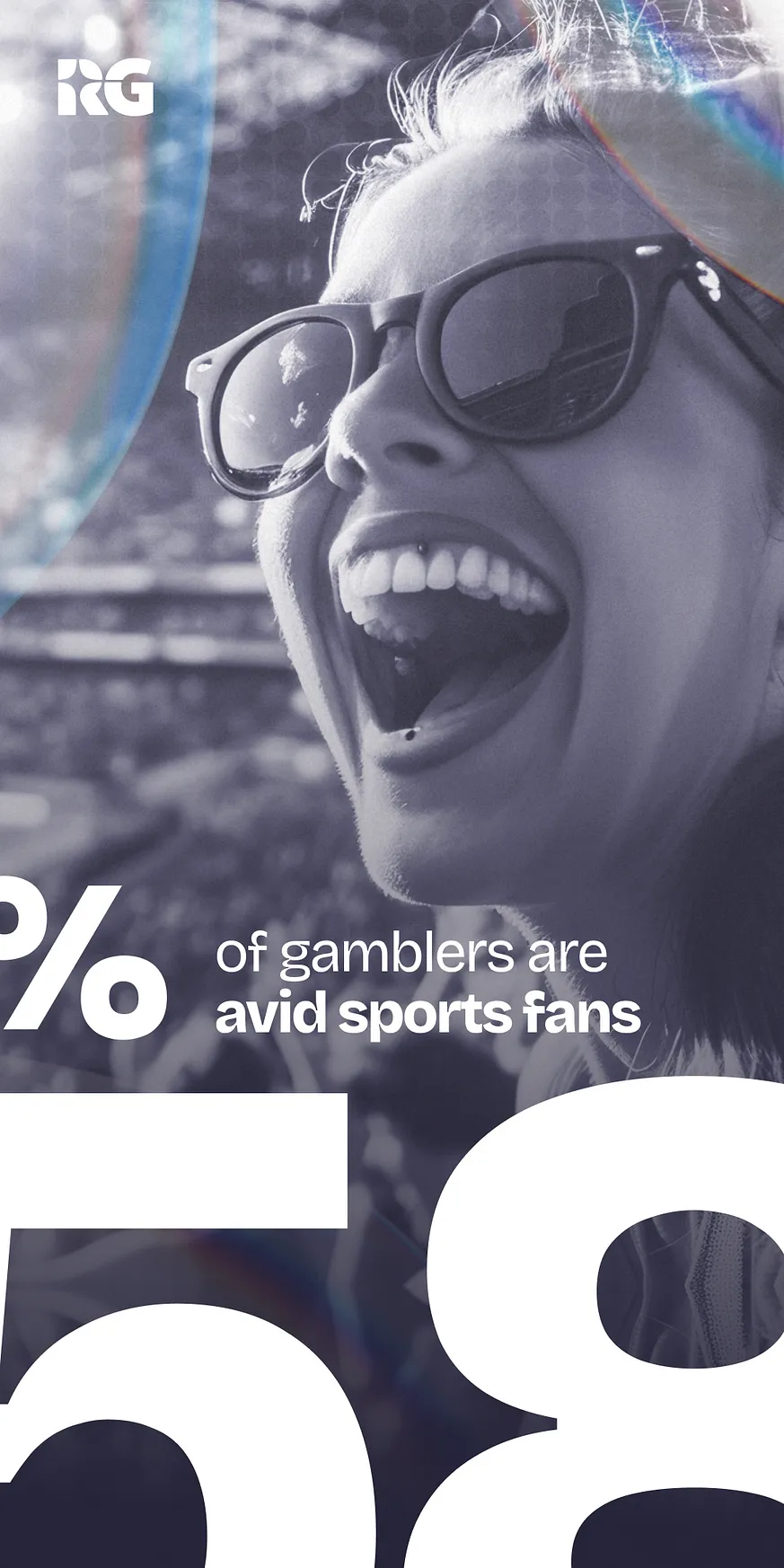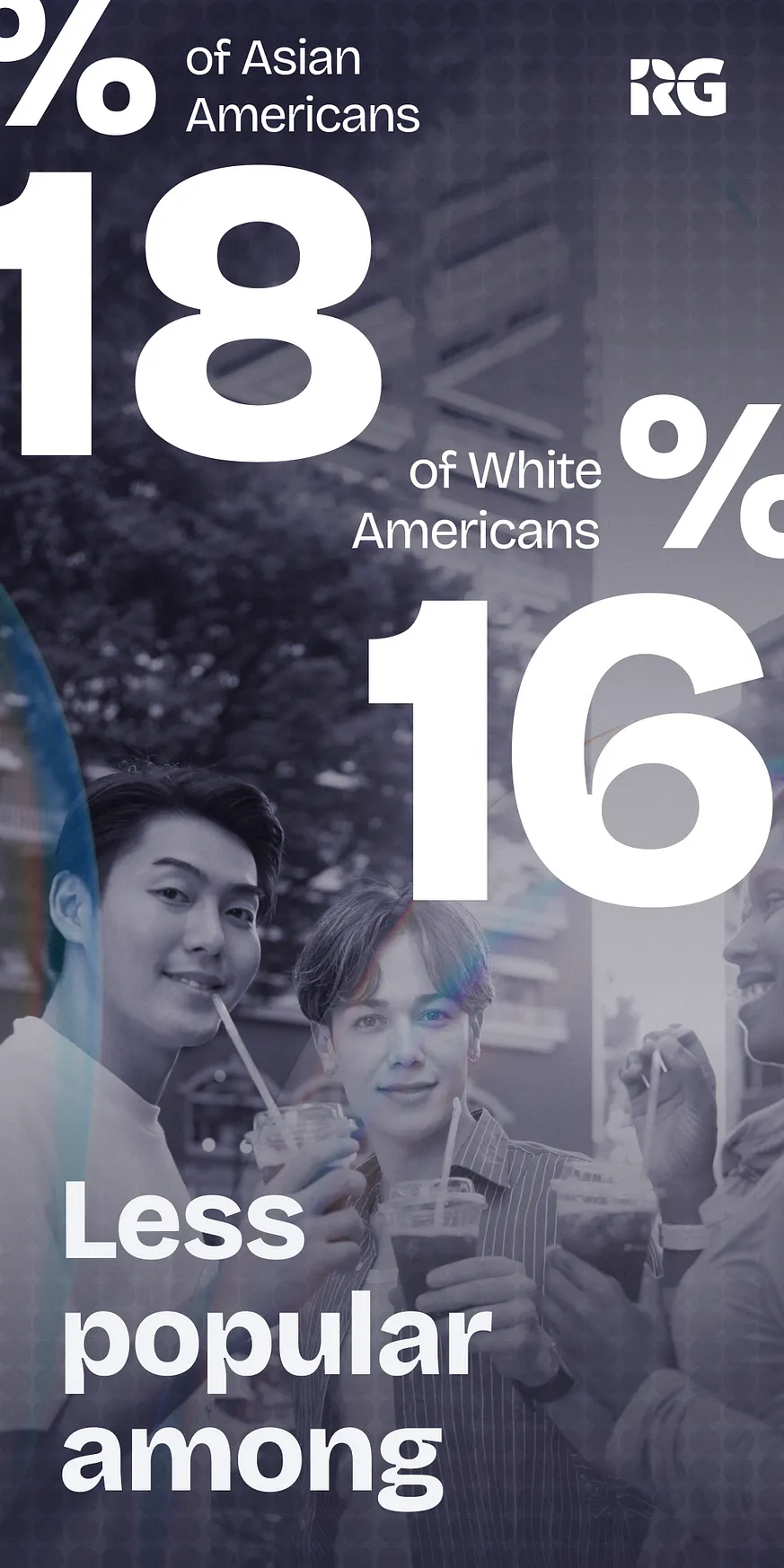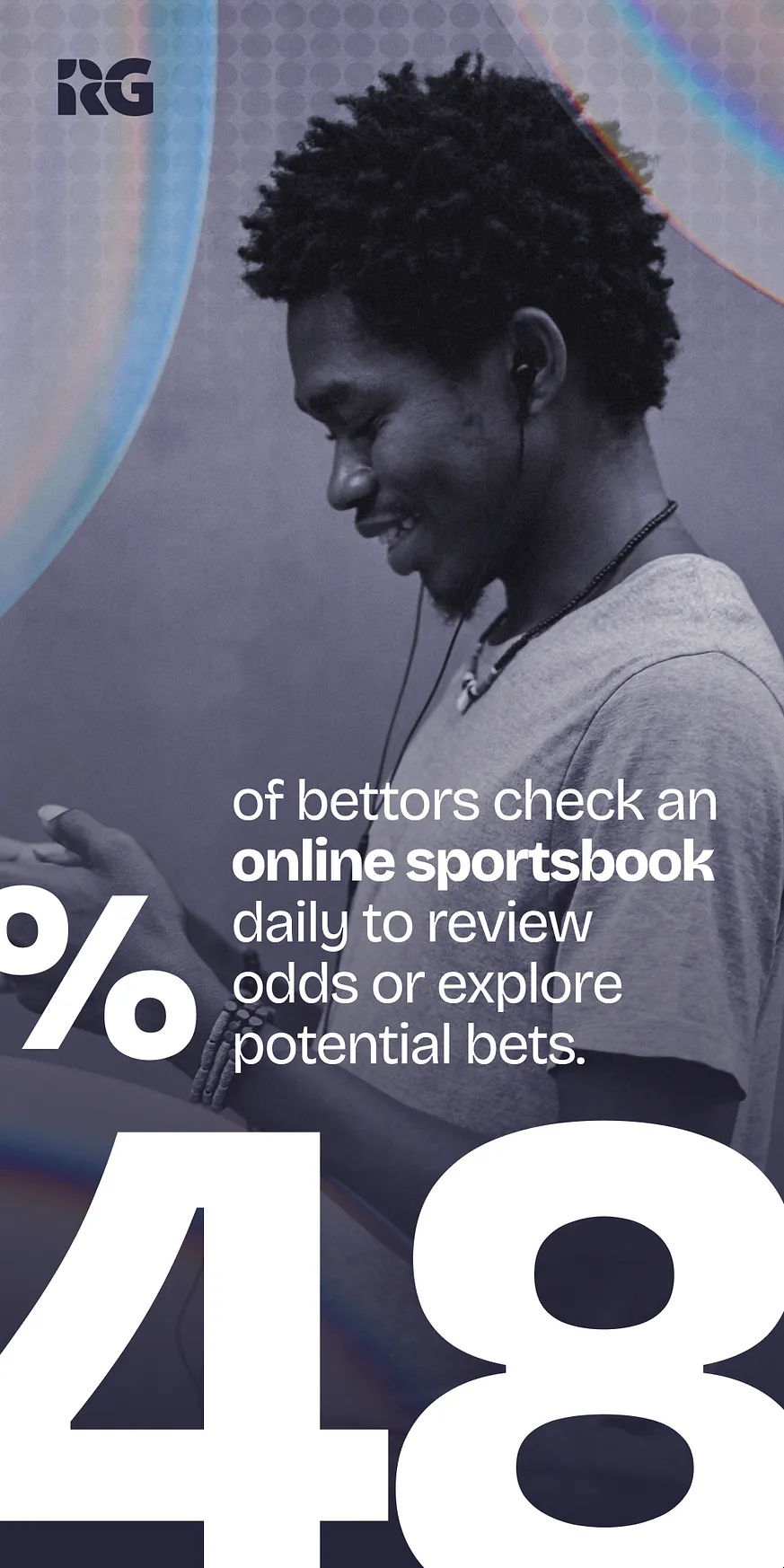Summary
As sports betting becomes increasingly popular, understanding its implications on addiction and mental health is crucial for individuals and society alike. Key Points:
- Tailored interventions and evidence-based strategies are essential for minimizing harm in sports betting, particularly for vulnerable populations.
- College-age bettors exhibit unique motivations and risk factors that necessitate targeted prevention efforts to curb problem gambling behaviors.
- The interplay between sports betting, mental health, and addiction highlights significant psychological consequences, emphasizing the need for awareness and support.
Tailored Interventions and Evidence-Based Recommendations for Effective Sports Betting Harm Reduction
In order to effectively tackle the challenges posed by sports betting, it's vital to identify vulnerable populations at an increased risk for gambling-related problems. Analyzing specific demographic and psychological profiles allows for tailored interventions and preventative strategies that meet their distinct needs. Furthermore, assessing the effectiveness of current prevention measures is essential; this entails reviewing existing harm reduction initiatives to highlight areas needing improvement. Proposing evidence-based recommendations will help alleviate the negative impacts of sports betting on both individuals and society as a whole.The recent legalization of sports betting across various states has triggered a significant surge in online wagering. This trend has not only amplified the prevalence of gambling-related issues, such as addiction, but also drawn college students into the realm of sports betting. This study aims to delve into the profiles of these primary gamblers, exploring their betting patterns and preferences while also examining the psychological, financial, and social ramifications associated with this growing phenomenon.
Key Points Summary
- People with mental health conditions are more likely to experience sleep disorders like insomnia and sleep apnea.
- Insomnia can lead to increased risks of suicide and human rights violations.
- Mental health affects our emotional, psychological, and social well-being, influencing how we think, feel, and act.
- It impacts personal relationships and daily life choices, defining a significant part of our overall health.
- Physical symptoms like headaches can arise from mental health issues such as depression.
- Unaddressed mental health problems contribute to larger societal issues, including homelessness, poverty, and economic instability.
Mental health is something that touches all of us in one way or another. It shapes how we see ourselves and interact with those around us. When mental health struggles go unnoticed or unaddressed, not only do individuals suffer but communities feel the impact too—affecting everything from relationships to economic stability. Recognizing the importance of mental well-being is crucial for both personal happiness and a healthier society.
Extended Comparison:| Aspect | Gambling Addiction | Sleep Disorders | Mental Health Conditions | Societal Impact |
|---|---|---|---|---|
| Prevalence | Increasing among youth and adults | Common in individuals with mental health issues | Affects 1 in 5 adults globally | Contributes to homelessness and poverty |
| Symptoms/Effects | Compulsive behaviors, financial ruin, relationship breakdowns | Insomnia, sleep apnea, daytime fatigue | Depression, anxiety, emotional instability | Increased crime rates, economic instability |
| Recent Trends | Rise of online gambling platforms during the pandemic | Growing awareness of sleep hygiene importance | 'Teletherapy' gaining popularity for treatment accessibility | Rising mental health advocacy; focus on prevention |
| Expert Insights | Studies show a correlation between gambling addiction and other mental illnesses (NCPG) | 'Cognitive Behavioral Therapy' recommended for insomnia (CDC) | 'Integrated care models' suggested for holistic treatment (WHO) | Policy reforms needed to address systemic issues |



"An estimated 63.46 million Americans have opened accounts with online sportsbooks." A recent national survey conducted by Siena College in Albany and St. Bonaventure University reveals that 19% of the American population hold accounts with online sports betting platforms, while a remarkable 91% of gamblers utilize betting apps on their smartphones. Among these bettors, a significant majority—58%—are dedicated sports enthusiasts, and 45% report using sportsbook applications more frequently than any other type of app.



A survey by Opinion X Diagnostics (April 2023) showed that 58% of Americans aged 18–22 have participated in at least one sports betting activity, with 27.2% engaging in sports betting a few times a month.}
Research from De Jans in 2022 indicates that advertisements for digital gambling—particularly those featuring betting odds—tend to elicit more favorable responses among viewers, thereby heightening the likelihood of young adults, especially men, indulging in gambling activities. {Research by De Jans (2022) highlights that digital gambling advertising, especially when it includes betting odds, leads to more positive reactions towards sports betting ads, increasing gambling intentions among young adults, particularly men.



Research shows that specific behavioral and demographic traits are closely linked to a heightened risk of gambling-related issues. Young, single men—especially those who are either employed full-time or studying—are particularly at risk, especially when they frequently participate in sports betting. This demographic is heavily swayed by media advertising and the expectations set by their peers, which can lead to increased gambling activities and potential complications (Hing et al., 2015).}
{Adolescents and young adults stand out as especially vulnerable, facing significant dangers such as financial troubles and mental health challenges stemming from gambling addiction (Rizzo et al., 2023).



When we take a closer look at the demographics of gamblers, we find that nearly half (46.2%) are under 35 years old, while an impressive 37.4% belong to the 35–49 age bracket. A particularly noteworthy aspect is the substantial number of young male gamblers aged between 18 and 34. The majority of these bettors are relatively inexperienced in the gambling world, with only 29% having held an account for longer than two years. Additionally, research conducted by Siena College in Albany indicates that almost half—48%—of bettors check online sportsbooks daily to assess odds or consider new betting opportunities.



Betting Habits of College-Age Bettors
"**Item 1: Proportion of Bettors by Bet Placement Frequency**The Odds Assist study revealed a significant proportion of active bettors, with 59% placing bets at least once a week. This indicates a large and engaged audience, particularly during the duration of the study from August 18–22, 2022. Delving deeper, the study also highlighted that 24% of bettors engage in sports betting 3 or more times a week, suggesting a substantial segment of highly active players.}
{"**Item 2: Bet Sizing Patterns Among College-Age Bettors**
The study uncovered notable trends in bet sizing among college-age bettors (18 to 24). A significant majority (82.8%) of their wagers fell below $50, indicating a tendency towards smaller bet amounts. Notably, approximately half of all wagers placed by this demographic (52.5%) ranged between $10 and $50, providing insights into their typical risk appetite and potential bankroll management strategies."
The Opinion X Diagnostics survey has revealed some intriguing insights among college-age individuals regarding their gambling habits. Only 13.9% of respondents reported placing bets several times a week, while 13.3% engage in sports betting a few times each month. Additionally, 15.2% indicated that they place wagers on a monthly basis. Interestingly, more than half of those surveyed—57.6%—admit to betting only a few times a year or even less frequently.



Only 18% of gamblers reported that they make weekly deposits into their sportsbook accounts or do so more frequently, while 16% indicated that they only deposited funds once when they began betting. The majority of gamblers, accounting for 43%, prefer to deposit funds into their sportsbook accounts on an occasional basis. Notably, Black Americans and Latino Americans lead in terms of regular deposits; 28% and 22% from each respective group deposit money into their accounts at least once a week.
On average, one in four bettors (24%) chooses to leave their winnings in their account for future bets, while 5% have never withdrawn any funds. Interestingly, women appear to be less motivated by financial gain. A greater proportion of women—27%—typically keep their winnings for new wagers compared to 23% of men. Additionally, 7% of women have never made a withdrawal, whereas only 3% of men can say the same. However, when it comes to managing their earnings, women tend to adopt a more cautious approach; 51% will withdraw money once they hit $100 or more in winnings, compared to just 45% of men. Moreover, only 15% of women are willing to wait until they reach $500 or more before cashing out, in contrast to 28% of men who take that risk.



Women bettors are less risky - only 42% of them have ever "Chased" a bet (bet and increased amount in hopes of getting money back from a previous bet, which has been lost), while 58% of men have done so.}
Interestingly, cultural factors play a role as well. Among Latino American bettors, the tendency to chase bets is quite pronounced, with 63% admitting to this practice. Meanwhile, Asian American bettors show greater caution; only 39% engage in such risk-taking behaviors. {Such an attitude is more popular among Latino American bettors (63%) while Asian American bettors are more risk averse - only 39% of them demonstrate such behavior.
Approximately two-thirds of bettors, specifically 59%, have placed bets totaling $100 or more in a single day through online sportsbooks. Notably, 24% of these individuals have wagered $500 or more within the same time frame. It's important to highlight that female bettors tend to exhibit a more cautious approach; only 47% have ever placed bets of $100 or greater, in contrast to 65% of their male counterparts. Furthermore, just 13% of women have bet $500 or more compared to 29% of men.}
{When examining different ethnic groups, Latino Americans and Asian Americans are identified as the most inclined to take risks in betting. Among them, 69% and 66%, respectively, have engaged in bets of $100 or more at some point. Additionally, when it comes to higher stakes, 22% of Latino Americans and 31% of Asian Americans report having bet $500 or above.
The Impact of Sports Betting on Mental Health and Addiction
Incorporating technological advancements into sports betting, the integration of Artificial Intelligence (AI) algorithms and targeted advertisements has significantly transformed how gambling is approached. These developments have not only made betting more accessible but have also heightened its addictive potential. Research utilizing eye-tracking studies indicates that younger individuals with a stronger craving for gambling tend to concentrate on gambling-related ads, suggesting these promotions serve as potent triggers that might lead to increased participation in betting activities.}{Moreover, the psychological ramifications of sports betting cannot be overlooked. Regular bettors frequently exhibit higher rates of mental health concerns such as anxiety, depression, and stress. The presence of sports betting advertisements activates brain regions associated with reward and memory, which may contribute to escalated gambling behaviors while diminishing the effectiveness of responsible gambling initiatives.
The phrase "epidemic" captures the alarming surge in sports betting activities and their related issues spreading across the United States. This comparison highlights the pressing and widespread nature of the problem, drawing attention to the numerous individuals impacted and the serious social, economic, and psychological ramifications involved. The swift legalization of sports betting has triggered a dramatic rise in online gambling, affecting various demographics and regions while significantly impacting at-risk populations.
The Shifting Landscape of Sports Betting: Socioeconomic and Technological Influences on Gambling Behaviors
In recent years, the landscape of sports betting has undergone significant transformations, particularly influenced by various socioeconomic factors and technological advancements. Individuals from lower socioeconomic backgrounds are increasingly participating in sports betting, often driven by a desire for financial gain or an escape from their daily challenges. This trend highlights how economic circumstances can shape gambling behaviors and choices.Furthermore, the surge in online and mobile sports betting platforms has revolutionized access to gambling opportunities. The convenience afforded by these technologies allows individuals to engage in betting activities at any time and place, which contributes to a higher frequency of participation. As such, these advancements not only facilitate easier access but also potentially amplify the risks associated with gambling.
This convergence of socioeconomic influences and technological innovations necessitates a deeper understanding of the implications for both individuals and society as a whole.
Collaboration for Responsible Gambling
The NCPG collaborates with other organizations and agencies, including the AGA, to promote responsible gambling and provide support for problem gamblers. State Gambling Commissions and Control Boards vary in their specific regulations and responsible gambling measures, but they all work to ensure the integrity and fairness of sports betting within their respective jurisdictions.Global Collaboration and Regulatory Advocacy for Responsible Gambling
The Responsible Gambling Council (RGC) is dedicated to promoting responsible gambling practices and minimizing the risks associated with gambling activities. This commitment is reinforced through its partnerships with various international organizations, allowing for a broader exchange of knowledge and strategies. By collaborating with entities such as the World Lottery Association and the European Gaming and Betting Association, the RGC can share best practices and research findings that enhance global standards in responsible gambling.In addition to fostering international collaboration, the RGC plays an essential role in industry regulation. Their active participation in regulatory discussions ensures that responsible gambling standards are not only established but also continuously improved upon. The RGC engages with gaming commissions and regulatory bodies to advocate for evidence-based approaches, ensuring that policies reflect current research and effectively address the challenges faced by gamblers.
Through these efforts, the RGC aims to create a safer gambling environment by equipping stakeholders with valuable insights while aligning their initiatives with international benchmarks. This dual focus on collaboration and regulation positions the RGC as a leader in fostering responsible gambling practices both locally and globally.
Further exploration into the demographics, behaviors, and consequences of sports betting is essential for crafting tailored interventions and policies. Gaining insight into the shifting dynamics of sports betting and its impact on various groups will be crucial for effectively tackling this concealed epidemic. By acknowledging gambling addiction as an epidemic, both the United States and society at large can take proactive measures to reduce its adverse effects, provide support to those affected, and encourage healthier, more responsible gambling practices.
References
Mental Health: How It Affects Your Physical Health
Sleep problems. People with mental health conditions are more likely to suffer from sleep disorders, like insomnia or sleep apnea. Insomnia can ...
Source: WebMDMental health
And having a mental health condition increases the risk of suicide and experiencing human rights violations. The economic consequences of mental health ...
Source: World Health Organization (WHO)About Mental Health
Mental health includes our emotional, psychological, and social well-being. It affects how we think, feel, and act. It also helps determine how we handle stress ...
How Does Mental Health Impact Our Lives
It affects how we feel, think, and act around others. In total, it impacts our daily life. Some describe it as the absence of a mental illness.
Source: St. Mary's Health Care SystemPhysical health and mental health
Our bodies and minds are not separate, so it's not surprising that mental ill health can affect your body. Depression can come with headaches, ...
Source: Mental Health FoundationHow Does Mental Health Impact Our Lives?
Mental health is a critical aspect of our overall well-being. It affects how we perceive ourselves, our relationships, work, and daily life.
Source: Cura4UMental health: Definition, common disorders, early signs, and more
It affects how people react to stressors, engage with others, and make choices. According to the WHO, peak mental health is more than the ...
Source: MedicalNewsTodayUnattended Mental Health's Impact on Society
Unaddressed mental health problems can have a negative influence on homelessness, poverty, employment, safety, and the local economy. They may impact the ...


 ALL
ALL sports
sports
Discussions